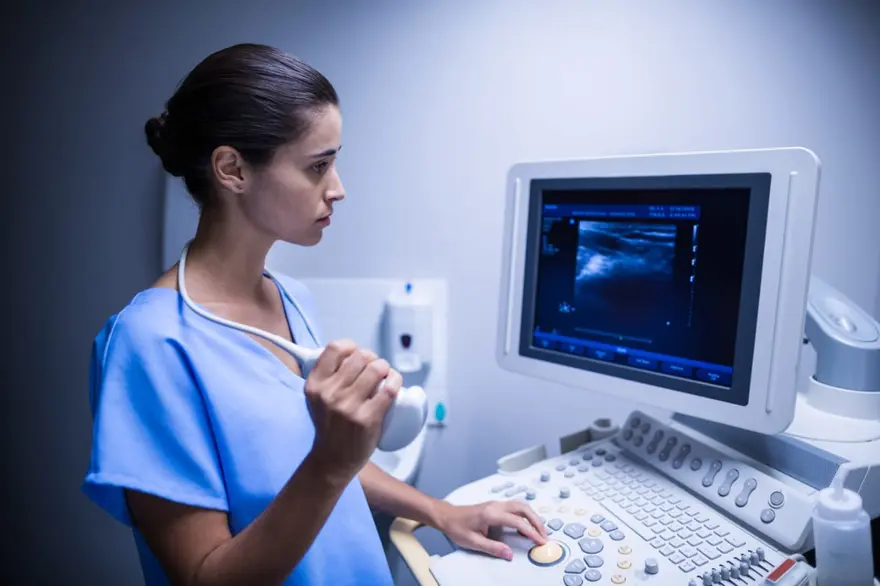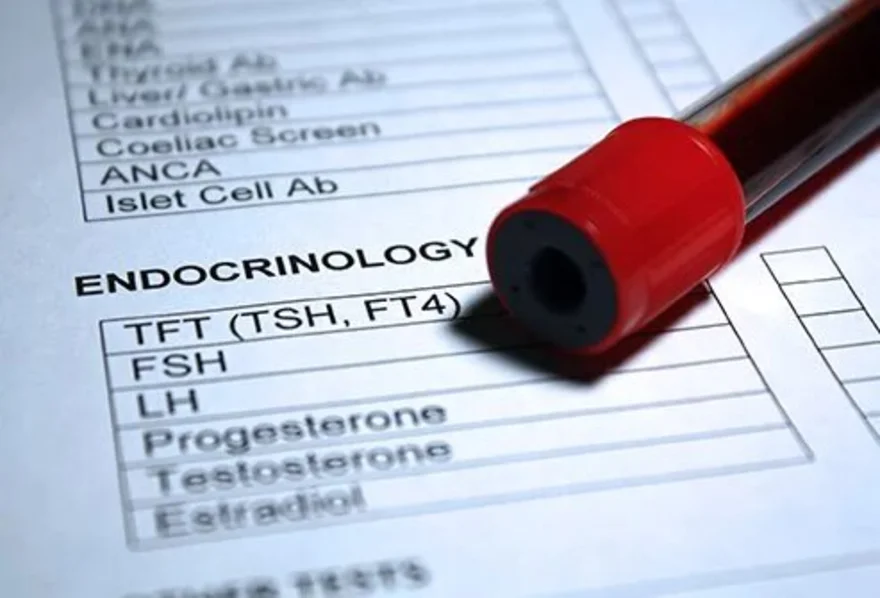Important lab tests during pregnancy
Accurate and Safer Diagnosis with Metropolis PregascreenTM Reflex Testing with NIPT: A Metropolis Study
In the realm of prenatal care, ensuring the health and well-being of both mother and child is paramount. The early detection of chromosomal anomalies in fetuses plays a crucial role in providing families with accurate information and facilitating informed decision-making. The advancement of medical technology has led to the development of innovative screening approaches, offering more accurate results and reducing the need for invasive procedures. One such groundbreaking method is the Metropolis PregascreenTM reflex testing with Non-Invasive Prenatal Testing (NIPT), which promises accurate and safer diagnosis. Understanding Prenatal Screening Prenatal screening has undergone significant evolution over the years, moving from basic ultrasound assessments to sophisticated genetic testing methods. Traditional approaches, such as maternal biochemical dual and quadruple markers, have been widely used to assess the risk of fetal chromosomal abnormalities. However, these methods have limitations in terms of their detection rates and potential for false positives. Enter Metropolis PregascreenTM Reflex Testing The Metropolis PregascreenTM reflex testing approach introduces a paradigm shift in prenatal screening. This innovative strategy combines traditional maternal biochemical markers with cutting-edge technology to provide more accurate and comprehensive results. The crux of this approach lies in the incorporation of NIPT, a method that evaluates cell-free fetal DNA (cfDNA) from maternal blood to detect common chromosomal abnormalities. The Metropolis Study To assess the clinical validity of the Metropolis PregascreenTM reflex testing approach, a comprehensive study was conducted. The study involved analyzing retrospective data from 51,574 Indian women who underwent maternal marker screening between January 2021 and March 2022. The goal was to determine the effectiveness of this approach in accurately identifying high-risk cases and providing a safer diagnostic path. The study yielded promising results, showcasing the potential of the Metropolis PregascreenTM reflex testing approach. Out of the total high-risk cases identified through traditional screening methods, a significant portion—34.65%—opted for NIPT. This choice reflects the growing trust in the accuracy and reliability of NIPT in identifying chromosomal anomalies. Furthermore, the study demonstrated that NIPT had the ability to reclassify a substantial percentage of high-risk cases as low risk, leading to a more accurate assessment and potentially reducing unnecessary stress for expectant parents. Advantages of Metropolis PregascreenTM Reflex Testing The Metropolis PregascreenTM reflex testing approach offers several advantages that contribute to accurate and safer diagnosis: Reduced Need for Invasive Procedures: One of the most significant benefits is the reduced reliance on invasive procedures like chorionic villus sampling and amniocentesis. NIPT provides a non-invasive option that yields accurate results without the associated risks of miscarriage. High Accuracy: The study showcased that the accuracy of NIPT, when integrated with the Metropolis PregascreenTM reflex testing approach, is comparable to karyotyping, the gold standard for chromosomal anomaly detection. Informed Decision-Making: Accurate and early diagnosis empowers expectant parents with the information they need to make informed decisions regarding their pregnancy. Safer Diagnostic Journey: By minimizing the need for invasive procedures, the approach reduces potential risks to both the mother and the fetus, leading to a safer diagnostic journey. Conclusion The Metropolis PregascreenTM reflex testing approach with NIPT heralds a new era in prenatal care. Its ability to accurately identify high-risk cases and provide a safer diagnostic path signifies a positive transformation in the way we approach prenatal screening. The study's findings underscore the significance of integrating advanced technology with traditional screening methods to achieve more accurate results, greater patient satisfaction, and ultimately, healthier outcomes for both mothers and their unborn children. As we continue to embrace the potential of innovative approaches, we move closer to a future where accurate and safer diagnoses become the norm in prenatal care. Read the Original Article here - Clinical utility of PregascreenTM reflex genetic testing for pre-natal screening in Indian population: A new diagnostic approach - IJOGR
Important lab tests during pregnancy
Lab tests are part of routine health care during pregnancy. Few of these tests are performed with a blood sample while others use a urine sample or a sample of tissue taken from your vagina, cervix, or rectum. These tests called prenatal tests are designed with the primary goal to help your health care provider find out how you and your baby are doing during pregnancy. The different kinds of tests available for pregnant women include: Tests to confirm pregnancy Routine screening tests, which can assess mother’s health along with baby’s health status Maternal health screening used to identify specific disease and infection increasing the risk of complications for you and your baby Diagnostic tests done for high-risk pregnancies. The different phases of pregnancy will need different types of tests to track mother’s and baby’s health. Various lab tests required for various phases of pregnancy are discussed below. Screening in First Trimester of Pregnancy Although the following tests are conducted in early pregnancy, your doctor can request you these lab tests at any time of the pregnancy. Complete blood count Complete blood picture can determine the counts of different types of cells including red blood cells (RBCs), white blood cells (WBCs), and platelets The number of RBCs can detect whether you have a certain type of anemia and determine the status of iron, vitamin B12, and folate deficiency The number of WBCs can determine how many disease-fighting cells you have in your blood, indicative of an infection in the body The number of platelets can show whether you have a problem with blood clotting. Blood group and Rhesus compatibility screening The results of blood group ABO and Rh typing will figure out if the woman is type A, B, AB, or O and if they are Rh negative or positive Identifying the ABO blood group is highly important in pregnant women so as to ascertain your blood group for emergencies like heavy bleeding at the time of birth Besides, knowledge of the Rhesus (Rh) factor of the mother is crucial so as to determine Rh compatibility with the growing baby. The Rh factor is an inherited protein found on the surface of red blood cells (RBCs). If your RBCs have the protein, you are Rh positive. If you RBCs lacks the protein, you are Rh negative. Rh incompatibility occurs if a woman is Rh-negative and her fetus is Rh positive, the woman’s body can make antibodies against the Rh factor These antibodies can damage the fetus’s RBCs This usually does not cause problems in a first pregnancy, when the body makes only a small number of antibodies However, it can cause issues in a subsequent pregnancy In cases of Rh incompatibility, most women will be given a shot of Rh-immune globulin at 28 weeks and again a few days after delivery. Rubella antibody status All pregnant women should be monitored for rubella antibodies If rubella virus infects a developing fetus in thefirst 16 weeks of pregnancy, affected babies will have severe birth defects including deafness, eye defects, heart defects, mental retardation The risk of complications decreases if the infection occurs after 20 weeks gestation The goal of the test is to recognize women who have not been immunized or have reduced immunity and have higher chances of contracting rubella However, non-immune mothers should not be vaccinated during their pregnancy and should receive the vaccination after giving birth in order to protect future pregnancies. Screening for sexually transmitted infections Sexually transmitted infections (STIs) can cause complications for you and your baby All pregnant women should be tested for syphilis and chlamydia early in pregnancy. The screening is important, as a baby born to mothers infected with syphilis can be stillborn You can also be evaluated for gonorrhea, if you are 25 or younger. Infants born to mothers infected with hepatitis B will become carriers and have a higher likelihood of developing chronic liver disease, including cirrhosis, liver cancer, etc. Prevention of transmission of hepatitis B virus from mother to infant is achieved by administration of hepatitis B vaccine and immunoglobulin to the infant at birth. Human immunodeficiency virus (HIV) screening is crucial and all pregnant women should be screened for HIV Women who are HIV positive will be given treatment in order to decrease the risk of HIV being transmitted to their infant Measures to reduce mother-to-child transmission of HIV infection include antiretroviral therapy, elective cesarean section delivery, and the avoidance of breastfeeding. Additionally, if a pregnant woman is believed to be at risk for HIV, hepatitis C screening should also be considered. Maternal serum screening/ Dual marker test Pregnancy-associated plasma protein-A screening (PAPP-A) is done in early pregnancy, and its abnormal levels are linked to a higher risk for chromosomal defects Human chorionic gonadotropin (hCG) is a hormone made by the placenta in early pregnancy. Its abnormal levels are associated with chromosomal issues Both these tests in combination have a greater potential to diagnose genetic birth defects such as Down syndrome (trisomy 21) and trisomy 18 in the developing baby. Book your first trimester maternal serum screening dual marker test here. Apart from these screenings in the first trimester, testing for varicella antibody status in pregnant women even with no history of illness or vaccination should be considered. Vitamin D screening of mothers is also important, as vitamin D is required for normal bone growth development in the fetus. Screening in Second Trimester of Pregnancy Screening at 26–28 weeks’ gestation mainly includes another round of complete blood count, blood group of antibodies, and glucose tolerance test. Glucose tolerance test A glucose screening test is used to determine gestational diabetes, a temporary condition that develops during pregnancy Although this disease usually disappears after the baby is born, women who develop gestational diabetes have a higher possibility of developing type 2 diabetes later in life Gestational diabetes can increase your chances of needing a cesarean delivery as babies born to mothers with gestational diabetes are usually born larger. Test for Urine infection All pregnant women should have a midstream urine culture at first and again at the second trimester and then at 36 weeks gestation, to exclude a sub-clinical urine infection. Alpha-fetoprotein screening (AFP) This blood test, also known as MSAFP (maternal serum AFP) measures the level of alpha-fetoprotein in your blood during pregnancy. Abnormal levels of AFP may indicate: Open neural tube defects like spina bifida Down syndrome Complications in the abdominal wall of the fetus Twins An incorrect due date. Most of the times, the doctor can advise a triple marker test because it looks at the levels of AFP, and two pregnancy hormones, estriol and hCG to determine the presence of any chromosomal abnormalities in the baby. Screening in Third Trimester of Pregnancy Group B streptococcus test Group B streptococcus (GBS) is most commonly found in the vagina and rectum of women and can pass from a pregnant woman to her baby during labor Although this occurs rarely to 1 or 2 babies out of 100, GBS can lead to severe neonatal infection or sepsis Hence, taking a vaginorectal culture at 35 to 37 weeks gestation can rule out GBS infection. Prenatal screening tests act as a vital source of information for pregnant women. These tests are periodically done to evaluate women’s and baby’s health, and the presence of any pathological condition. Talk to your doctor if you have any concerns if you are not sure if you should be screened or if you are feeling anxious. Have a happy pregnancy!
 Home Visit
Home Visit Upload
Upload
















 WhatsApp
WhatsApp